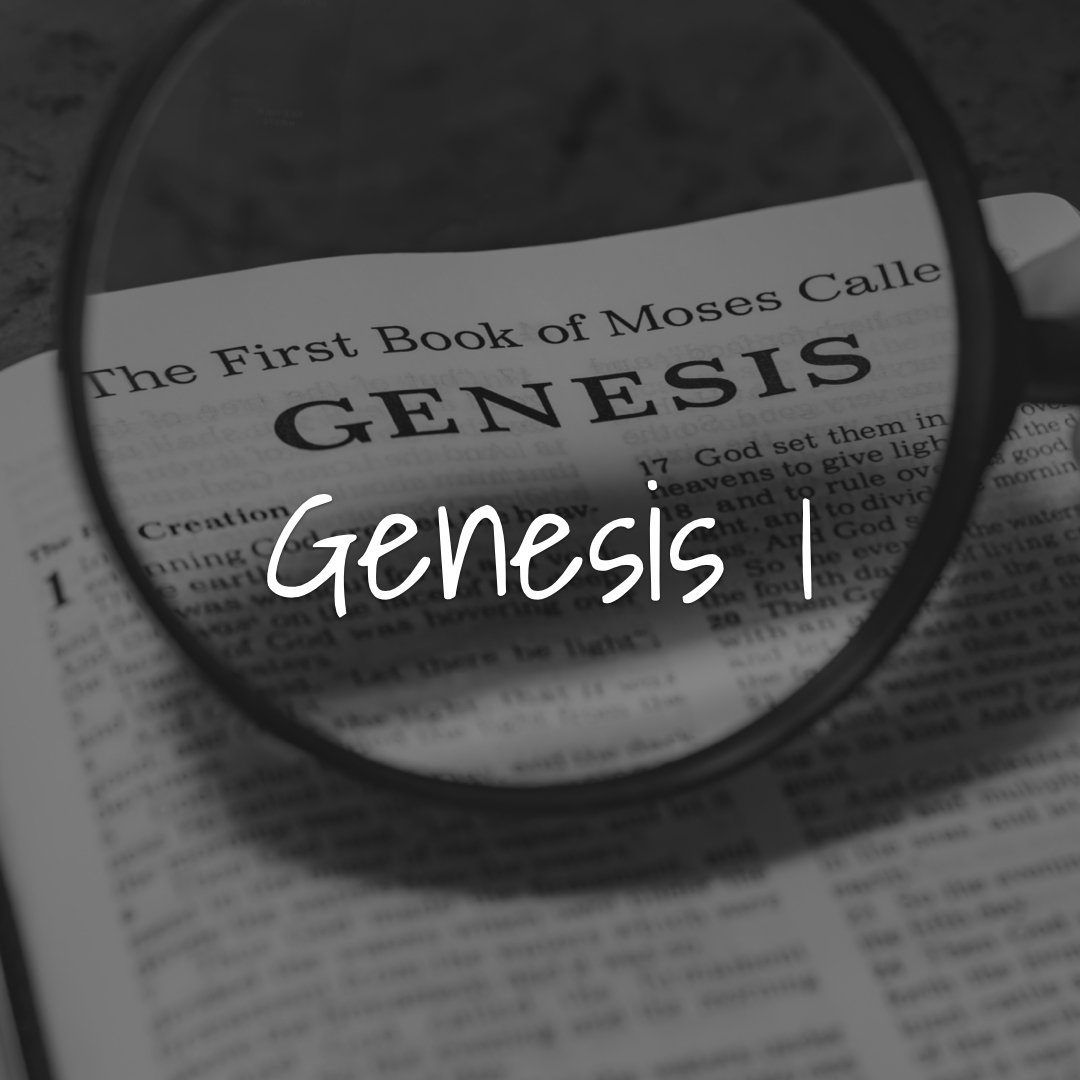
Genesis 1
Genesis 1 presents the story of creation, where God brings the universe into existence through His word. Over six days, God forms the heavens and the earth, separating light from darkness, the sky from the waters, and the land from the sea. He then fills creation with life, populating the sky with birds, the seas with fish, and the land with animals, culminating in the creation of humanity in His own image. Each act of creation is pronounced "good," and the narrative concludes with God resting on the seventh day, establishing a rhythm of work and rest that is central to the biblical understanding of time and life.

Genesis 2
Genesis 2 offers a more detailed account of the creation of humanity, focusing on the formation of Adam from the dust of the ground and the breath of life God breathed into him. It describes the Garden of Eden, where God placed Adam to work and care for it, providing every tree for food, including the tree of life and the tree of the knowledge of good and evil. God then creates Eve from Adam's rib as his companion, establishing the first human relationship. The chapter emphasizes the intimate connection between God and humanity, as well as the sanctity of marriage, as Adam and Eve become "one flesh."

Genesis 3
Genesis 3 recounts the fall of humanity. The serpent deceives Eve into eating from the tree of the knowledge of good and evil, which God had forbidden. Eve shares the fruit with Adam, and their eyes are opened to their nakedness, filling them with shame. When God confronts them, Adam blames Eve, and Eve blames the serpent. As a result of their disobedience, God curses the serpent, increases the pain of childbirth for Eve, and condemns Adam to toil the ground for food. They are then banished from the Garden of Eden, losing access to the tree of life and entering a world of suffering and mortality.

Genesis 4
Genesis 4 tells the story of Cain and Abel, the first sons of Adam and Eve. Both brothers brought offerings to the Lord, but while Abel's offering was accepted, Cain's was rejected. In anger and jealousy, Cain killed his brother Abel, committing the first murder. God confronted Cain, who tried to deny responsibility, but God knew what had happened. As punishment, Cain was cursed to wander the earth, marked so that no one would kill him. The chapter also details Cain's descendants, the rise of various human innovations, and the eventual birth of Adam and Eve's third son, Seth, through whom humanity would continue.

Genesis 5
Chapter 5 of Genesis provides a genealogy from Adam to Noah, showing the lineage of early humanity. It highlights the long lifespans of these early figures, with most living for hundreds of years, and emphasizes the cycle of life and death that began after the fall of Adam and Eve. Despite this, the chapter introduces Enoch, who "walked with God" and was taken by God, sparing him from death. This chapter ultimately sets the stage for the story of Noah, whose birth is accompanied by a hope for relief from the curse that burdened humanity.
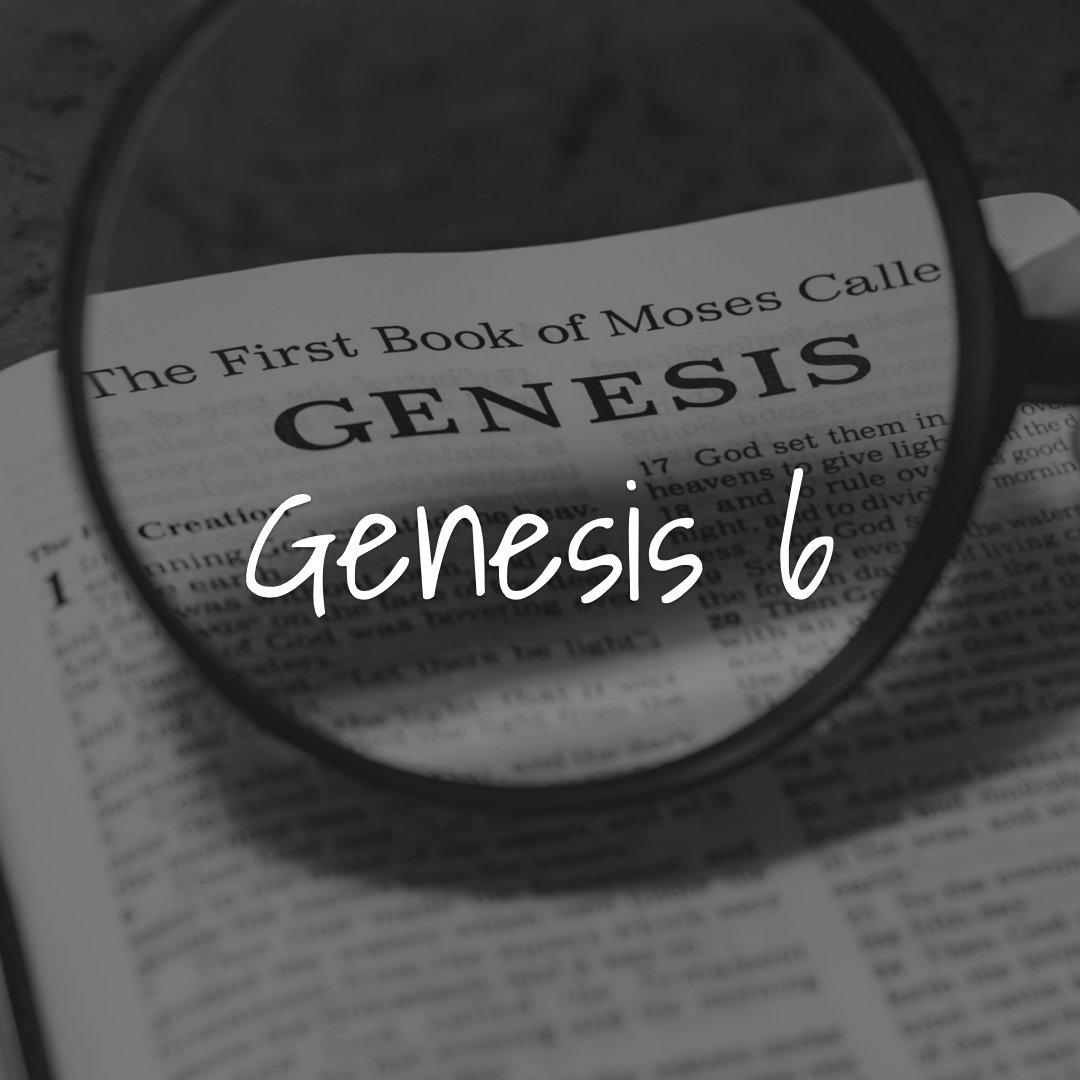
Genesis 6
Genesis 6 describes a turning point in humanity's relationship with God. As human wickedness grows, God becomes grieved by the corruption and violence that fills the earth. In response, He decides to cleanse the world through a great flood, sparing only Noah, a righteous man who "walked with God." God commands Noah to build an ark to save his family and pairs of animals from the impending destruction. This chapter introduces God's plan to reset creation, while emphasizing Noah's faithfulness and obedience amidst a world of increasing sin.

Genesis 7
Genesis 7 describes the great flood as God commands Noah to enter the ark with his family and pairs of every animal. The rain falls for 40 days and 40 nights, covering even the highest mountains as the floodwaters rise. All life outside the ark perishes, demonstrating God’s judgment on a corrupt world. Meanwhile, Noah, his family, and the animals are preserved in the ark, floating safely on the waters. The floodwaters remain for 150 days, setting the stage for God’s eventual renewal of the earth.

Genesis 8
After 150 days, God causes the floodwaters to recede, and the ark comes to rest on Mount Ararat. Noah sends out a raven and later a dove to test if the land is dry, and the dove finally returns with an olive leaf. After more waiting, Noah and his family leave the ark, and he builds an altar, offering sacrifices to God. God promises never to destroy the earth by flood again, and He establishes the natural order of seasons, ensuring the continuity of life.
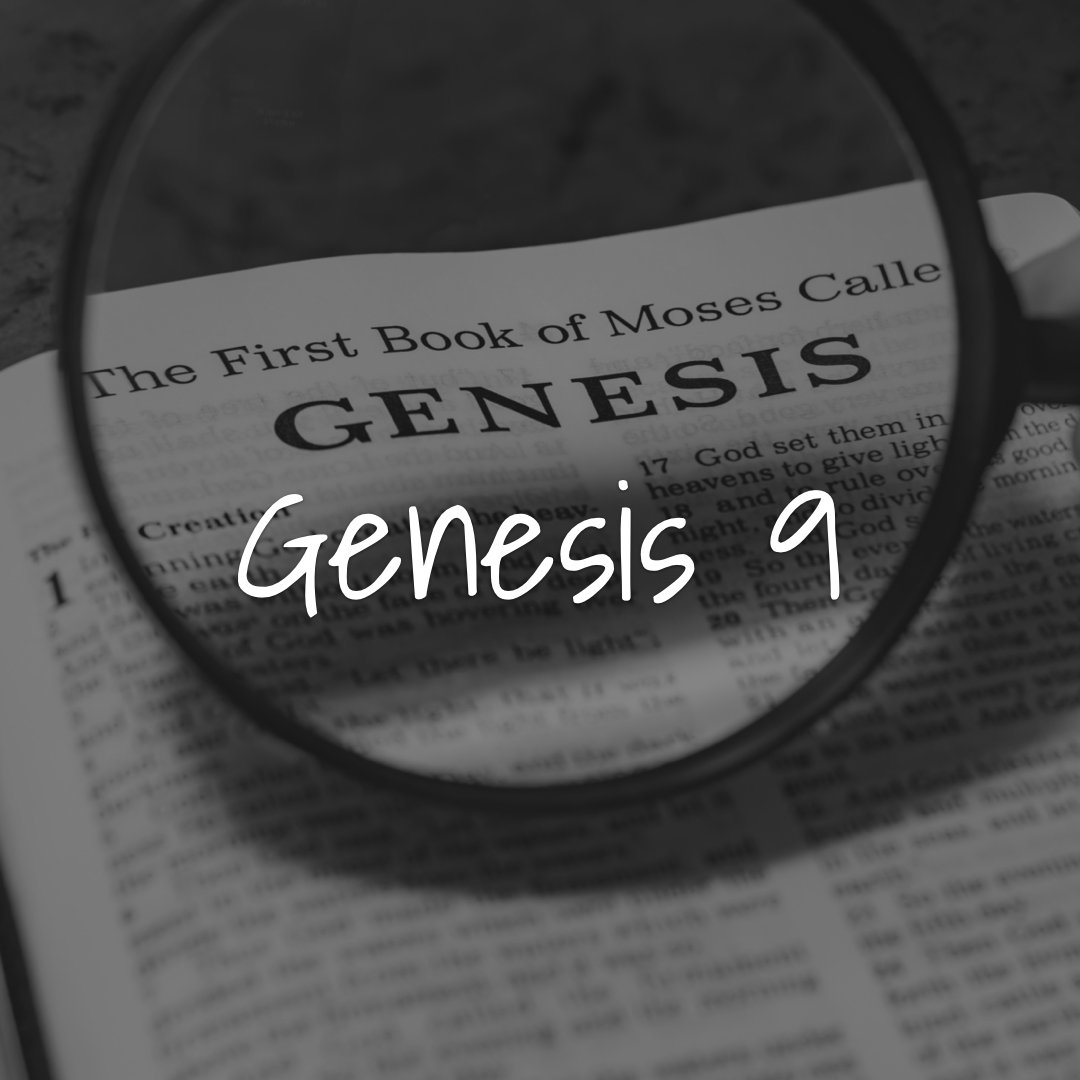
Genesis 9
God blesses Noah and his sons, giving them dominion over all living creatures and allowing them to eat meat, but forbidding the consumption of blood. He establishes the Noahic Covenant, symbolized by the rainbow, as a sign that He will never again destroy the earth by flood. Noah later plants a vineyard, becomes drunk, and is dishonored by his son Ham, while Shem and Japheth cover their father’s shame. Noah curses Canaan, Ham’s son, and blesses Shem and Japheth, foreshadowing the future nations that will come from them.
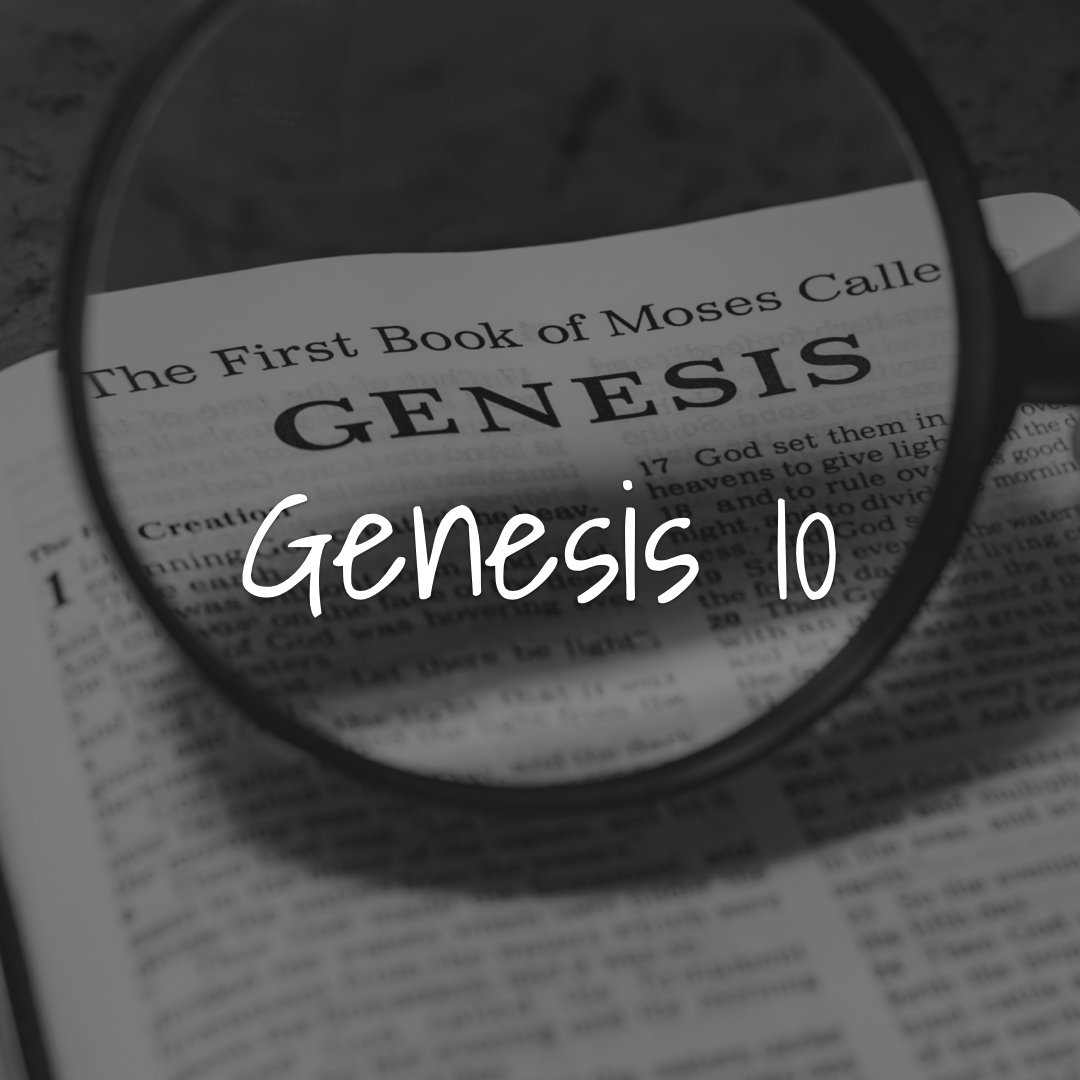
Genesis 10
Genesis 10, known as the Table of Nations, lists the descendants of Noah’s three sons—Shem, Ham, and Japheth—who become the founders of various nations. Japheth’s lineage spreads into distant lands, Ham’s descendants include Egypt, Canaan, and Babylon, and from Shem’s line comes Eber, the ancestor of the Hebrews. The chapter highlights how humanity spreads across the earth, forming different languages and cultures, setting the stage for the events of Babel.
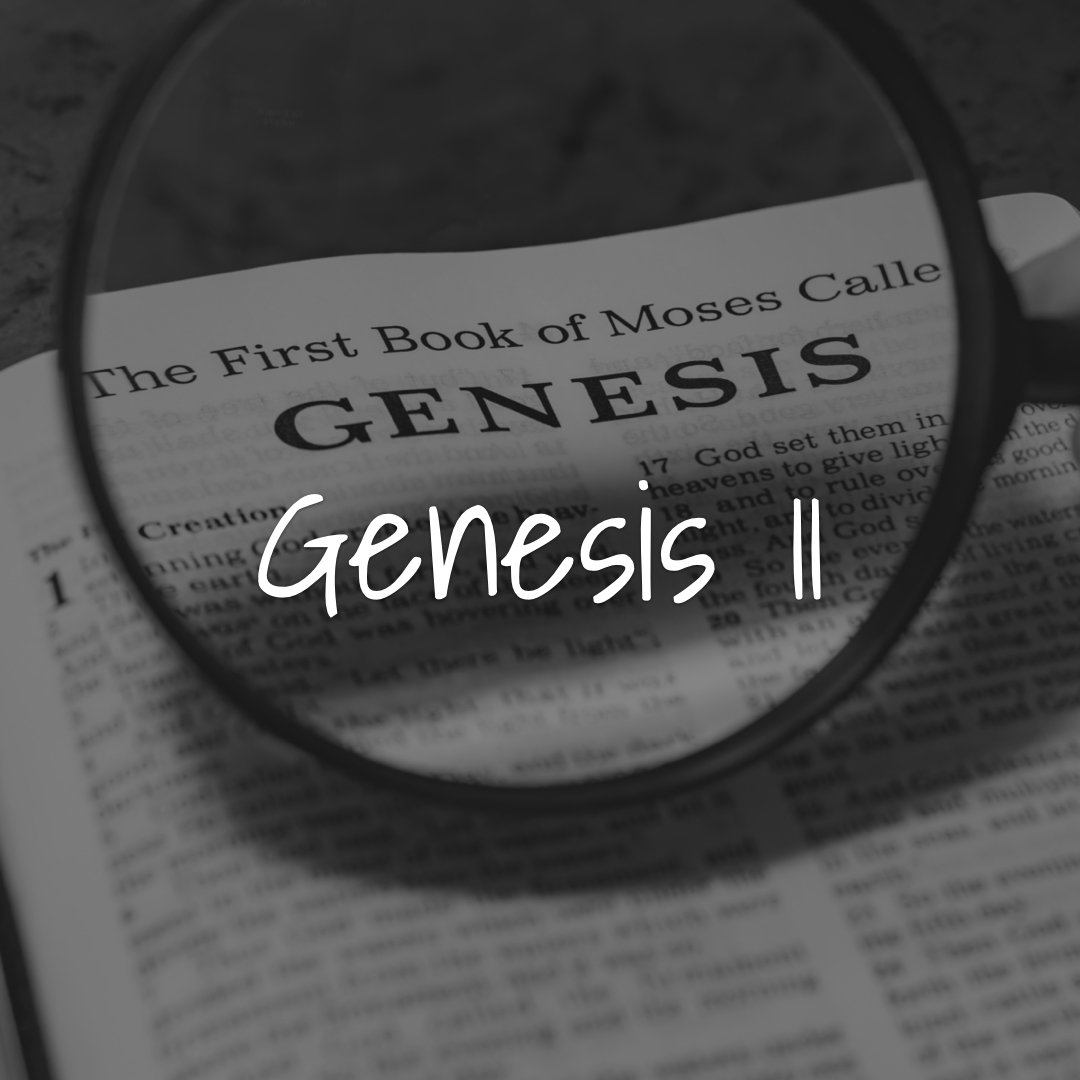
Genesis 11
Humanity, still united with one language, attempts to build the Tower of Babel to make a name for themselves and prevent scattering. God confuses their language, causing them to disperse across the earth. The chapter then shifts focus to the genealogy of Shem, leading to Terah, the father of Abram (Abraham). The stage is set for the next major biblical narrative—God’s covenant with Abraham and the formation of Israel.